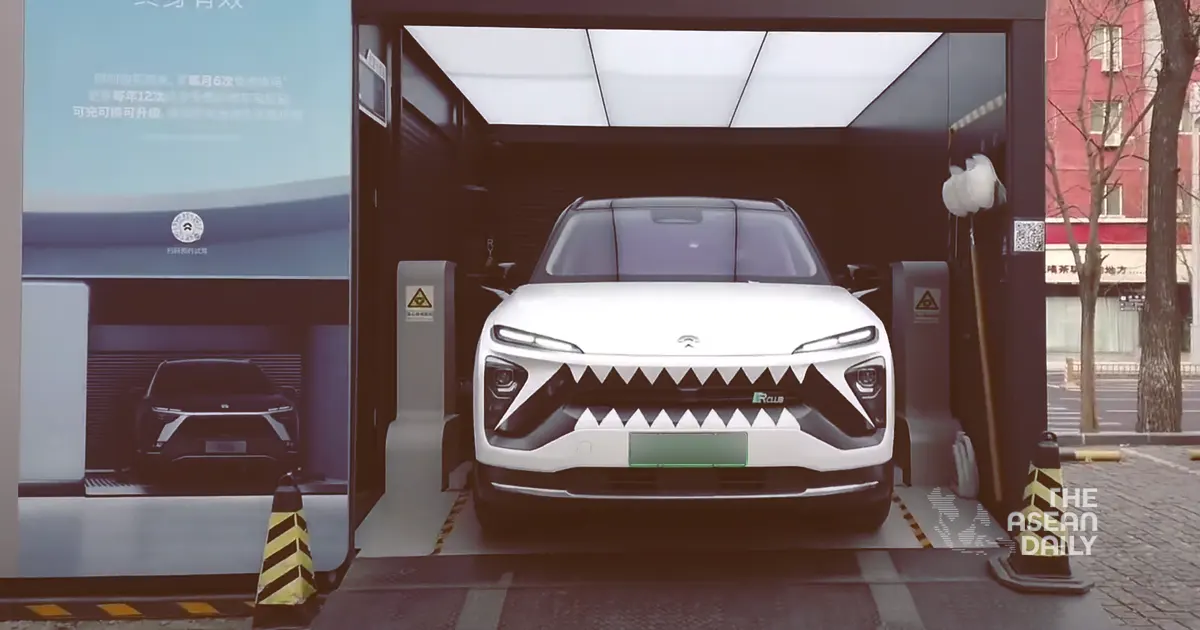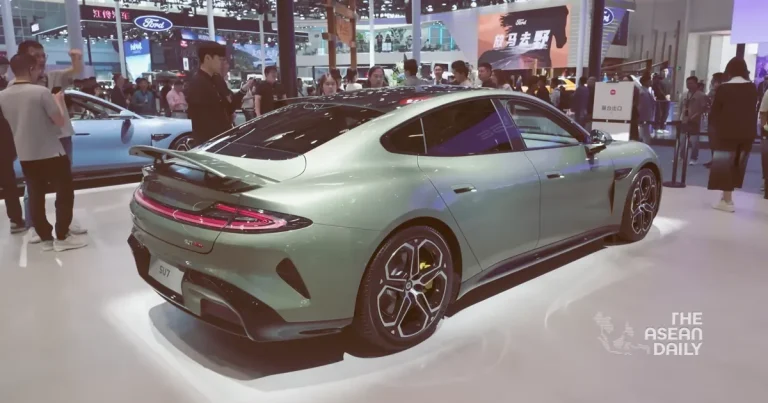4-10-2024 (SINGAPORE) In just a few years, China has gone from being an emerging player in the automotive industry to becoming the global leader in electric vehicles (EVs). Today, some of the most recognizable EV brands in the world, such as BYD, NIO, and XPeng, come from China. How did a country, which was once primarily known for its cheap manufacturing, outpace traditional car-making giants like the U.S., Germany, and Japan to become the driving force behind the electric vehicle revolution?
The answer lies in a combination of government policy, strategic investments, and a deep understanding of both the domestic and global markets. This article will explore how China positioned itself at the forefront of the electric vehicle industry, and what this dominance means for the future of the global automotive sector.
A Strategic Vision Rooted in Policy
One of the primary reasons behind China’s meteoric rise in the EV space is its government’s forward-thinking approach. As early as the 2000s, the Chinese government recognized that electric vehicles could serve as a key tool in reducing the country’s dependency on oil imports and improving air quality in its heavily polluted cities. In 2009, China rolled out its first national plan for new energy vehicles, offering significant subsidies to both EV manufacturers and consumers. These subsidies helped jumpstart the industry, making EVs more affordable for everyday citizens while encouraging companies to invest in research and development (R&D).
By the mid-2010s, the Chinese government doubled down on its commitment to electric vehicles with more stringent policies. These included mandates for automakers to produce a certain percentage of EVs and the introduction of favorable regulations for battery manufacturing and charging infrastructure. In particular, China prioritized the development of the lithium-ion battery supply chain, becoming the largest producer of EV batteries globally—a critical advantage in the electrification race .
A Massive Domestic Market
China’s huge population has always given it a unique advantage in terms of market potential. With a population of over 1.4 billion people, the demand for vehicles is naturally high. As urbanization increased, so did the need for transportation solutions that wouldn’t further exacerbate the country’s environmental problems. EVs, which are seen as eco-friendly and forward-thinking, have become increasingly popular among China’s growing middle class.
Chinese EV makers also benefit from the government’s promotion of “new energy” transportation, such as electric buses and taxis, which further accelerates EV adoption. In cities like Shenzhen, all buses and taxis have already transitioned to electric power, which not only helps reduce urban pollution but also sets a clear example of how EVs can be integrated into everyday life .
This combination of government support and a massive domestic market created an ideal environment for EV manufacturers to thrive. Chinese automakers were able to scale production quickly, ensuring that they could meet both domestic and, eventually, international demand.
Mastering the Supply Chain
One of China’s greatest achievements in the EV space is its control over the electric vehicle supply chain, particularly the production of batteries. Batteries are the most expensive component in an electric vehicle, and China’s dominance in battery manufacturing has given it a significant edge. The country is home to some of the world’s largest battery producers, such as CATL (Contemporary Amperex Technology Co. Limited), which supplies batteries not only to Chinese automakers but also to international brands like Tesla .
By investing heavily in mining resources such as lithium, cobalt, and nickel—key components in lithium-ion batteries—China has secured a reliable and relatively inexpensive supply of these critical materials. This vertical integration, where manufacturers control much of the supply chain, has allowed Chinese companies to produce batteries at a lower cost, giving them a significant price advantage over their Western competitors .

Innovation and Competitiveness
While Chinese automakers initially gained a foothold in the EV market through affordable, mass-market vehicles, they have since shifted focus toward innovation and premium offerings. Companies like NIO and XPeng now compete directly with Tesla, producing high-performance, luxury EVs equipped with cutting-edge technology such as autonomous driving capabilities and smart connectivity.
What’s impressive is how rapidly Chinese companies have been able to improve the quality of their vehicles. Ten years ago, the idea of a Chinese car being mentioned alongside Tesla or Mercedes-Benz would have seemed far-fetched. But today, Chinese EVs are recognized for their build quality, advanced features, and competitive pricing. The innovation isn’t just limited to the cars themselves—China is also leading in the development of EV infrastructure, such as fast-charging networks and battery-swapping stations .
Global Expansion and Influence
As Chinese EV makers perfected their products for the domestic market, they began looking outward. In recent years, Chinese EV manufacturers have aggressively expanded into international markets, especially in Europe, where demand for electric vehicles is growing rapidly due to stricter emissions regulations. BYD, for example, has already become a major player in Europe and Latin America, offering a range of affordable electric models .
China’s EV dominance is also reshaping the global automotive landscape. Traditional automakers in Europe and the U.S. are now scrambling to catch up, investing billions of dollars into electric vehicle production and battery technology. However, China’s early entry into the market, combined with its control over key supply chains, gives it a lasting advantage.
Looking forward, China’s position in the electric vehicle market seems secure. Its government remains committed to promoting EV adoption, and its companies continue to innovate and expand globally. However, the road ahead is not without challenges. As more countries ramp up their own EV industries, competition will intensify. Additionally, geopolitical tensions—especially between China and the U.S.—could impact the global EV market, particularly in terms of trade policies and access to resources .




